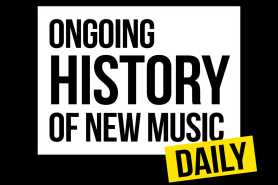Prime Minister Justin Trudeau said a “Team Canada approach” is going to be vital in the face of sweeping new tariffs being pledged by U.S. president-elect Donald Trump.
Trudeau said he had a “good call” with Trump, who announced Monday night that he will sign an executive order imposing a 25 per cent tariff on all products coming into the United States from Canada and Mexico once he comes into office.
“We obviously talked about laying out the facts, talking about how the intense and effective connections between our two countries flow back and forth,” Trudeau told reporters in Ottawa before a cabinet meeting.
“We talked about some of the challenges that we can work on together. It was a good call.”
Trudeau said he has already been in contact with several premiers, including Ontario’s Doug Ford and Quebec’s François Legault, and a first ministers’ meeting will be held this week to talk about the U.S.
“This is a relationship that we know takes a certain amount of working on, and that’s what we’ll do,” Trudeau said.
“One of the really important things is that we be all pulling together on this. The Team Canada approach is what works.”
Deputy Prime Minister and Finance Minister Chrystia Freeland echoed Trudeau’s comments reiterating that the Canadian government will be taking a “Team Canada approach.”
“This is a moment when Canada needs to be united. We need to be strong and we need to be smart,” Freeland said at a news conference in Ottawa.
“There are significant challenges. We know that. We also know that there are real opportunities.”
Freeland did not say if Canada will retaliate when asked by a reporter, but said that “our government will always defend the national interest, and we’re going to do it by playing as Team Canada.”
Meanwhile, Ford did not rule out retaliating against Trump’s plan if it goes into effect.
“Well, hopefully we won’t come to that. But if it does, there is no choice, we have to retaliate,” he said at a news conference in Toronto on Tuesday.
“We have to retaliate not against the Americans, the administration that has made a wrong call on us. It’s very simple.”
Trump has said the tariffs will remain in place until both countries stop drugs, in particular fentanyl, and people from illegally crossing the borders.
“Both Mexico and Canada have the absolute right and power to easily solve this long simmering problem,” Trump wrote on his Truth Social page.
“We hereby demand that they use this power, and until such time that they do, it is time for them to pay a very big price!”
A joint statement from Freeland and Public Safety Minister Dominic LeBlanc said Ottawa will continue to discuss border security issues with the incoming administration.
Ford said the first ministers’ meeting will take place Wednesday evening, with the focus on how provincial and territorial governments can secure Canada’s borders.
“We’re going to do everything we can to make sure that we understand their concerns, address their concerns, and make sure that we have a strong economic tie.”
Trump’s announcement has drawn criticism from political leaders across Canada.
Ford called it the “biggest threat” from the U.S. administration in decades and said it’s “very, very hurtful to Canadians and Americans” on both sides of the border.
“We love our American friends and they love us and this is no way to treat your closest ally.”
“I hope we can come up with a solution, to support both sides of the border. We’re collaboratively in co-operation with the new administration, and I’m confident we will.”
Speaking to reporters in Quebec City, Legault said that everything must be done to avoid the tariffs, which could lead to the loss of thousands of jobs.
“We have, from Quebec to the United States, $87 billion of exportation and only $43 billion of importation, so we cannot start a war and we have to do everything we can to not have these tariffs.”
British Columbia Premier David Eby posted on X that Trump’s tariffs “would hurt Canadians and Americans alike.”
“Canadians must stand united. Ottawa must respond with strength,” Eby said.
“We’ve had a our own representation in Washington since 2005 and increasingly, we’ve seen that we are the best proponents of our own interests, and we will continue to establish those relationships,” said Alberta Premier Danielle Smith in an interview airing Sunday on The West Block.
“I very much like to take a Team Canada approach, but I can tell you that Justin Trudeau hasn’t made it easy.”
Conservative Leader Pierre Poilievre said Trump has “made an unjustified threat” on “our already weak and shrinking economy.”
“We actually need to do is stand up for our economy by axing taxes, unleashing free enterprise, and having a massive boom in our energy and resource production and standing up for our country against unfair tariffs,” he said at a news conference in Ottawa Tuesday.
When asked by a reporter if he would be willing to retaliate against Trump’s pledged move, Poilievre responded: “If necessary.”
There is also growing concern among business groups in Canada.
Canadian American Business Council CEO Beth Burke said in a statement Monday night that Trump’s proposal would harm businesses on both sides of the border and would “erode the economic and geopolitical strength of North America.”
Modelling by the Canadian Chamber of Commerce suggests a 10 per cent across-the-board tariff would reduce the size of the Canadian economy between 0.9 and one per cent, resulting in around $30 billion per year in economic costs.
It estimates the U.S. would see around US$125 billion a year in economic costs.
“For the American businesses and for American consumers, this would mean higher prices and increased costs for input and less competitive business environment for America as well,” the chamber’s chief economist, Stephen Tapp, said in an interview with The Canadian Press on Monday.
The Canadian Federation of Independent Business said Trump’s tariff announcement “has already sent shockwaves through Canadian markets.”
According to the CFIB, small and medium-sized businesses account for approximately 40 per cent of exports to the U.S.
“Any disruption to the flow of goods between the US and Canada would be a major economic hit,” CFIB president Dan Kelly said in a statement.
“Tariffs would not just affect our exporters as their effect on the value of the Canadian dollar would increase the cost of US imports — affecting small businesses and consumers alike.”
Several cabinet ministers also weighed in on the threat from Trump, with Industry Minister François-Philippe Champagne saying it should be taken seriously.
“President Trump is not president for two months, so we still have a number of weeks to engage.”
Champagne said the bottom line is that “we’ll stand up for Canada” and its workers.
Housing Minister Sean Fraser also said that “this is an extremely important time to continue to engage with our partners” in the U.S.
“They are a long-standing ally, and we’re going to do what we can to work through these kinds of challenges to ensure we protect the interests of Canadians,” Fraser told reporters in Ottawa.
Immigration Minister Marc Miller said Ottawa and Washington have “shared interests” in making the situation “manageable and controlled” at the border.
Miller said regardless of the plans down south, Canada is considering a “number of measures” to strengthen security at the border.
“We’re looking at a number of measures and that absolutely includes additional resources.”
LeBlanc said Canada shares the same concerns as the U.S. around the integrity and security of the border and that work is already under way to boost resources.
“We have in recent days worked with the RCMP and border services about continuing to support them in terms of acquiring new technologies, drones, helicopters, additional human resources necessary in the case of surge requirements” he said.
LeBlanc said that continued security at the U.S-Canada border is in the interest of the Canadian and American economies.
“We’re prepared to do everything necessary to have an efficient, effective border that’s secure for both countries.”
—With files from The Canadian Press.
© 2024 Global News, a division of Corus Entertainment Inc.








 Ad Choices
Ad Choices